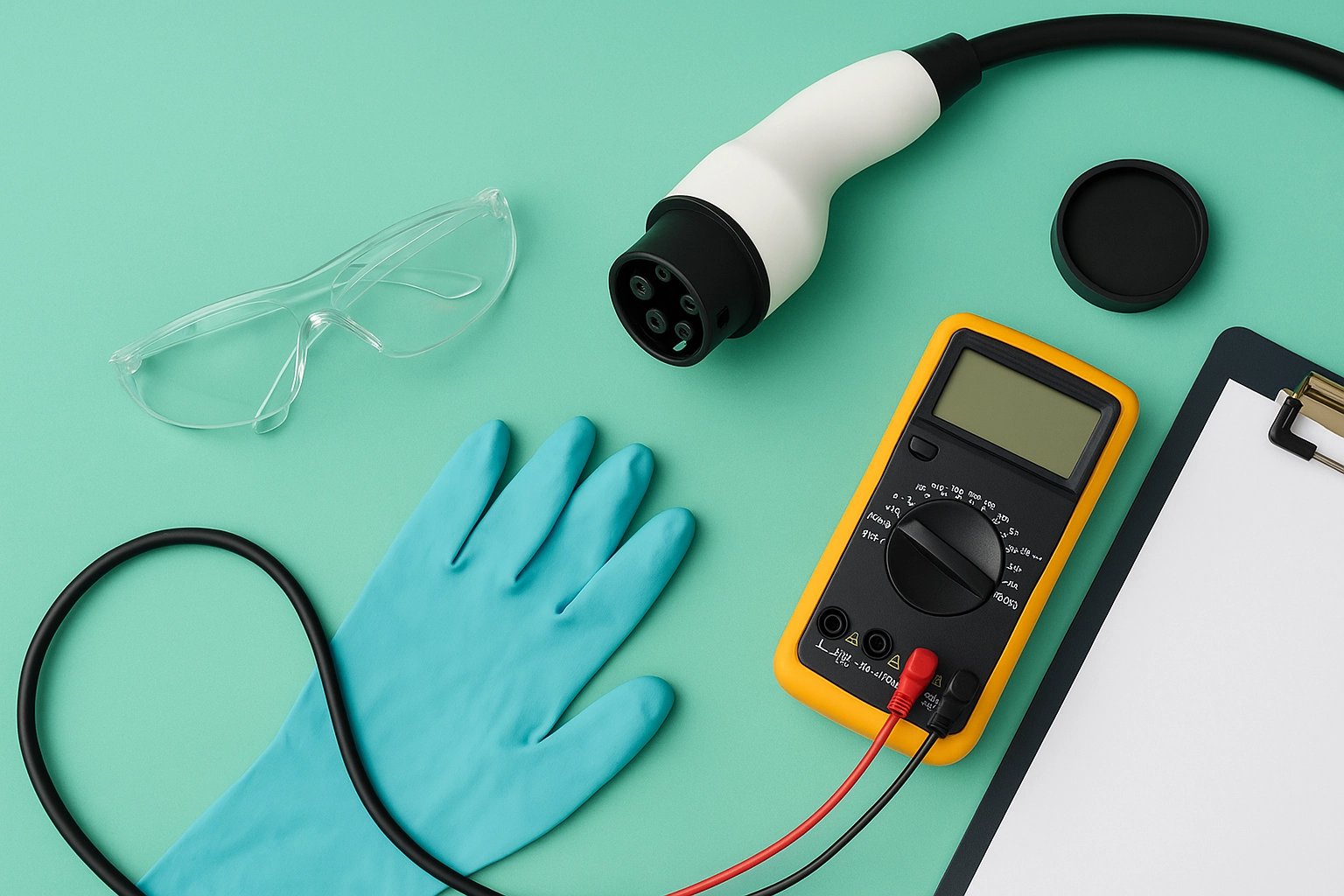GB T 20234 1 General Requirements for EV Connectors Test
The GB/T 20234-1 standard provides general requirements for electric vehicle (EV) connectors, which are critical components in the charging infrastructure. This standard is essential for ensuring that all EV chargers and vehicles can connect safely and reliably to charge. The primary focus of this test is on the mechanical integrity, electrical performance, and durability of the connector.
The GB/T 20234-1 standard ensures compatibility between different manufacturers' equipment, thereby promoting interoperability in the EV charging ecosystem. It also addresses safety concerns by specifying minimum requirements for connectors to withstand various environmental conditions and usage scenarios.
This test is particularly important as electric vehicles continue to gain popularity worldwide. As more countries implement policies aimed at reducing carbon emissions, the demand for reliable and safe EV chargers increases. The GB/T 20234-1 standard plays a vital role in ensuring that all components of the EV charging infrastructure meet the necessary safety and performance criteria.
The test covers various aspects such as mechanical strength, electrical insulation, contact resistance, durability under different environmental conditions (temperature, humidity), and more. Compliance with this standard is mandatory for manufacturers to sell their products within China's market. It ensures that all EV connectors are designed and manufactured according to the highest safety standards.
To achieve compliance with GB/T 20234-1, it is crucial to understand its scope and methodology fully. This comprehensive approach helps in identifying potential issues early on and ensuring that products meet or exceed regulatory requirements.
Scope and Methodology
| Type of Tests | Description |
|---|---|
| Mechanical Strength Testing | Determines the connector's ability to withstand external forces without damage. |
| Contact Resistance Measurement | Evaluates how much resistance exists between two conductors at their point of contact, ensuring efficient power transfer. |
| Insulation Withstand Voltage Testing | Assesses the connector's insulation integrity by applying a high voltage to ensure it can withstand electrical stress without breakdown. |
| Test Procedure Steps | Description |
|---|---|
| Preparation of Specimens | The connectors are prepared according to the test requirements, ensuring they represent real-world conditions as closely as possible. |
| Environmental Conditioning | The specimens undergo controlled environmental conditions (temperature and humidity) prior to testing to simulate real usage scenarios. |
| Conducting Tests | Detailed procedures for each type of test, including application force, voltage levels, duration, etc., are followed meticulously. |
Benefits
- Avoids costly recalls and product failures due to non-compliance with safety standards.
- Ensures seamless interoperability between different brands of EV chargers and vehicles.
- Increases consumer trust in the reliability and safety of electric vehicle charging infrastructure.
- Promotes compliance with international regulatory requirements, opening up markets for manufacturers.
Why Choose This Test
The GB/T 20234-1 test is essential for ensuring the safety and reliability of EV charging infrastructure. By choosing this test, you can:
- Avoid potential risks associated with non-compliant products.
- Ensure compliance with international standards, thereby expanding market access.
- Enhance brand reputation through adherence to high safety and quality standards.
- Facilitate smoother integration of new technologies into existing systems without compromising on performance or safety.





